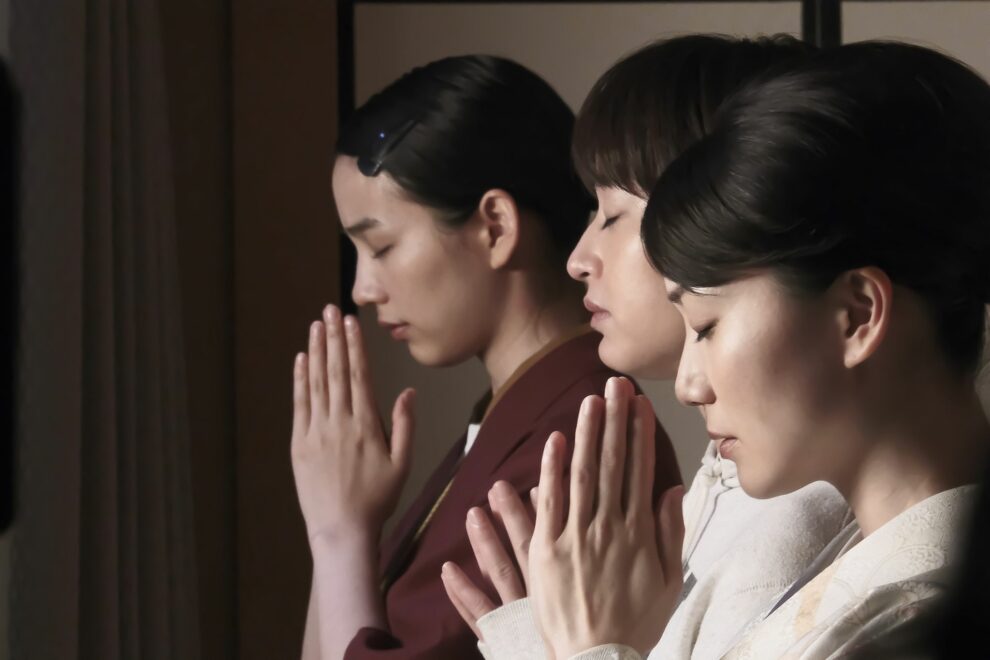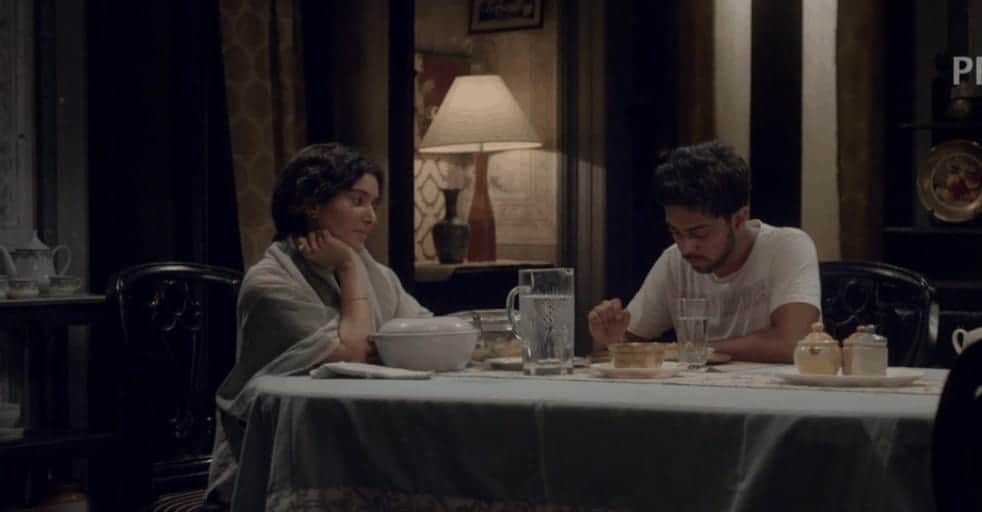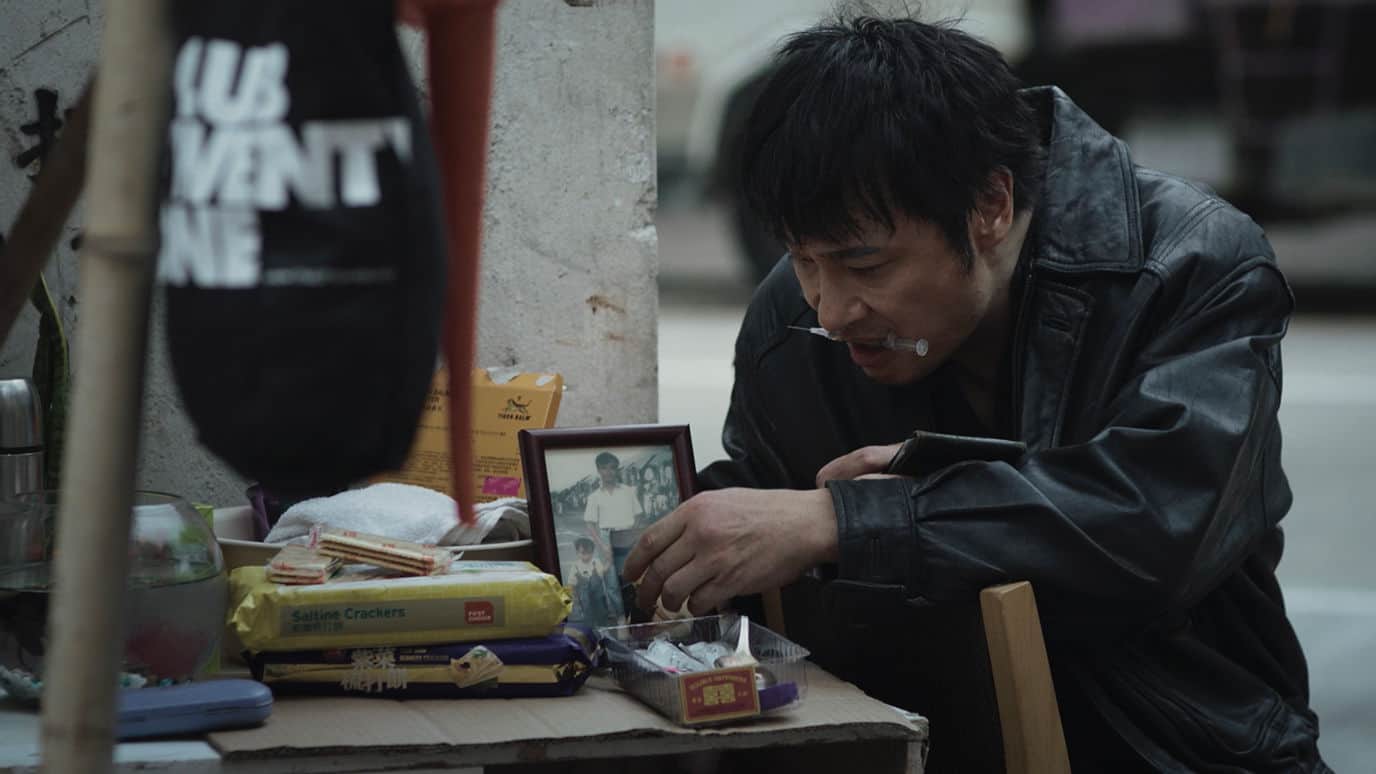Ryuhei Kitamura has had a rather interesting career. Starting with some of the cult titles of the 00s, including “Versus”, “Azumi” and “LoveDeath”, he then shot a Godzilla and a “Lupin The Third” film, then he moved to Hollywood to shoot films with Ruby Rose and Jean Reno among others, and now he is back with “Three Sisters of Tenmasou”, a manga adaptation that shows his most sensitive side as of now.
Three Sisters of Tenmasou is screening at Japan Cuts

The particular manga is “Tenmasou no Sanshimai: Sky High” by Tsutomu Takahashi (published from 2013 to 2014 by Young Jump Comics) and revolves around the said inn, a quaint out-of-time place in the small port town of Mitsuse. The establishment functions as a stopping point for people on the verge of death to decide if they want to return to the world of the living, where they are in a coma from an accident or illness, or move on to the next realm, where they will be reborn. The inn is run by Keiko Tenma and her older daughter Nozomi, while the younger sister, Kanae, is more interested in training dolphins and spending time with her boyfriend, Kazuma. Keiko and Nozomi constantly fight, with the former frequently pinning down the latter, who also fights with her sister, because she feels she has left all responsibility of running the inn to her. It is in this setting, that their half-sister (from the same father, Kiyoshi) Tamae arrives in the area, changing their lives forever.
The concept of the location that is actually a stop between life and death is quite prevalent in Japanese cinema, with titles like “After Life” and the anime “Bartender” being among the most renowned. Ryuhei Kitamura, however, does not follow any of the aforementioned recipes, instead implementing the concept in order to present another Japanese-favorite genre, the family drama. In that fashion, the dynamics that are immediately created with the appearance of a half-sister that has never met her sisters and their mother before, are quite interesting, also due to the initially invisible presence of a father that seems to constantly lurk above them. And while Nozomi and Keiko have somewhat succumbed to their bitterness, the former for a career lost and the latter due to her relationship with her husband, the appearance of Tamae sheds a bright light to their lives, a concept that eventually extends to the rather morose customers and Kanae.
In that fashion, Non's presence in the role of Tamae functions as the catalyst for all the stories here, with her once more bringing a breath of fresh air, with her naivety, cheerfulness, and unwavering optimism, along with her great relationship with fish, both of which were also highlighted in “The Fish Tale”. In fact, the casting here emerges as one of the best traits of the movie, with Kitamura getting great performances from every actor. Apart from Non, Mugi Kadowaki as Kanae is a pleasure to watch as always, while Yuko Oshima as Nozomi and Shinobu Terajima as Keiko highlight their similarities and the friction that they cause between them in the most eloquent fashion. Ko Shibasaki as Izuko, the ‘death messenger' is also quite good both in her mystery and the rather dramatic revelation of who she actually is, in an arc that also connects the movie with the casualties of the 2011 Great East Japan Earthquake. Masatoshi Nagase in a surprising role adds much to the family drama aesthetics, Kengo Kora as Kazuma shares a great chemistry with Kadowaki, while Kasumi Yamaya and Yoshiko Mita as two of the most “annoying” customers add both to the comedy and the drama here.
At 150 minutes and with a relatively slow pace, Kitamura had enough time to analyze all his characters through a number of episodes, an aspect that both benefits and is benefitted by the acting. Considering the nature of the movie, though, where the episodes are rarely impactful (or including some action) and the fish training arc essentially tiring, “Three Sisters of Tenmasou” definitely overstays its welcome (just like the customers of the inn one could say), in another title that seemed better suited for a series.
On the other hand, and again through the duration, Kitamura manages to make a number of comments regarding life and death, families, the relationships of mothers and daughters, bitterness, and how kindness can change people, in a concept, though, that seems somewhat romanticized, as does the whole film actually. In that fashion, and despite its dramatic premises, the production follows essentially a PG-13 approach, which Kitamura has definitely not honed as much as his exploitation one, something that definitely detracts from the impact the title could have.
Check also this interview
Where the film truly thrives, without buts this time, apart from the casting and acting, is its production values. DP Katsumi Yanagijima captures the idyllic seaside setting with gusto, occasionally in impressive fashion. The interior of the hotel is gorgeously set, with the various rooms fitting the aesthetics of each scene to perfection, while the contrast of the bright exteriors and the darker interiors works quite well throughout the movie.
“Three Sisters of Tenmasou” is a mixed bag of a film, since its individual elements are much better than their sum. It definitely deserves a watch though, if only for the cast.















